*New* Data User Feedback Survey on Federal Statistical System (2/28/25)
|
The American Statistical Association-George Mason University (ASA-GMU) Project on the Health of the Federal Statistical System has developed a data user feedback form to independently document the value of federal statistics and proactively identify challenges and opportunities facing statistical agencies.
Data from this survey will be shared in an annual report and outreach effort to Congress, the Office of Management and Budget (OMB), and other stakeholders. Since federal statistics are intended to be used, input from data users is critical for achieving the project goal. Learn more and complete the survey here.
(read more)
|
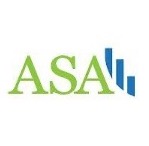 |
NWFSRDC News and Highlights Corner – Explore Our New Website!
|
CSDE is excited to announce the launch of the new Northwest Federal Statistical Research Data Center (NWFSRDC) website! Our revamped platform features a user-friendly interface and offers comprehensive resources to learn about this unique data resource at the UW. The NWFSRDC provides physical and/or virtual access to non-public data collected by U.S. government agencies. Over 200 microdata resources from 16 government agencies are accessible through the NWFSRDC.
(read more) |
 |
*New* Sarah Mayorga Shares Findings From Upcoming Book (2/27/25)
|
On Thursday, Feb. 27, 2025 from 12 – 2 pm, the Earl & Edna Stice Memorial Lectureship and Department of Sociology will host a talk by Sarah Mayorga (Brandeis University) in Savery 409. In this talk, Dr. Mayorga discusses findings from her forthcoming book, Urban Specters: The Everyday Harms of Racial Capitalism. Based on interviews with 117 residents of two working-class neighborhoods in Cincinnati, Ohio, she describes and analyzes how residents make sense of their lives and neighborhoods.
(read more) |
 |
Ohio Population Consortium Announces Webinars on Fertility Goals (2/27 and 3/24/25)
|
Over the course of the twentieth century, fertility intentions, desires, preferences, and attitudes (fertility “goals”) became key constructs for demographic research on fertility. The increasing focus in the past two decades on reproductive autonomy and reproductive justice highlights women’s (and occasionally men’s) own desires and preferences as the foundational concern for policy and programmatic activity. Even as fertility goals have gained theoretical and policy importance, many questions remain around conceptualization and measurement of these constructs.
(read more) |
 |
Social Science Research Council Virtual Lecture by Lawrence Katz (2/27/25)
|
On February 27th, Professor Lawrence Katz (Harvard University) will present a virtual lecture hosted by the Social Science Research Council entitled “Neighborhood Effects, Housing Mobility, and Place-Based Policies: Evidence from Experiments and Quasi-Experiments.” This lecture will cover his work on three landmark projects: Moving to Opportunity, enabling residents of public housing to move to lower-poverty neighborhoods; Creating Moves to Opportunity, providing additional support to families considering leaving high-poverty neighborhoods; and HOPE VI revitalization grants, investing in mixed-income developments in neighborhoods with distressed public housing.
(read more)
|
 |
Data Access With Federal Administration’s Transition
|
The challenges of data access during federal administrative transitions can happen every four years. What follows are some resources that might be useful. We will continue to update this blog post with new information. If you have any links that could be helpful, please send csde@uw.edu your updated and helpful information. We know that what follows may not provide you with the exact data you need, so let us know what you need and what’s missing and we can try to find where it is located.
(read more) |
 |
ICPSR Summer Scholarships in Quantitative Methods Now Available (2/28/25)
| Scholarships for the 2025 Inter-university Consortium for Political and Social Research (ICPSR) Summer Program are now open! These scholarships cover one of our General Sessions, where you can curate your own schedule of methods training to fit what you need for your research and goals.
View the full list of scholarships that we offer, along with scholarships offered in partnership with other organizations.
(read more) |
 |
*New* Gateway Exposome Coordinating Center (GECC) Offers Pilot Funding (3/1/25)
|
The new, NIA-funded GECC has pilot project funding available. The GECC facilitates research on the environmental determinants of Alzheimer’s Disease (AD) and AD-Related Dementials (ADRD) risk, resilience, and disparities, and emphasizes six environmental domains including climate and the physical environment. Application deadline is March 1.
(read more) |
 |
ASA Sociology of Population Section Student Paper Award (3/1/25)
|
The American Sociological Association’s Sociology of Population section is accepting nominations for the best student paper in the sociology of population. This award consists of a certificate and $500 award. The paper must use a sociological perspective to address an issue of relevance to contemporary demography, broadly construed; purely technical papers are not eligible. The paper can be published or unpublished and should be article-length (approximately 40 pages including tables and figures). Papers can be sole-authored or have multiple student authors.
(read more) |
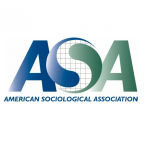 |
*New* Joint Seminar for Development Economics (JSDE) to Host Natalie Bau (3/3/25)
|
The Joint Seminar in Development Economics (JSDE) Series will host Dr. Natalie Bau (UCLA) for a talk on Monday, March 3rd entitled “The Long-Term Effects of School Quality in Low-Income Countries: Evidence From 15 Years of Data”. The seminar will take place in person at 11:00am in Savery 410.
Abstract: “Using rich data following children over 15 years in Pakistani villages, we provide the first causal estimates of the effects of attending a better primary school on children’s long-term outcomes in a low-income setting. Exploiting panel test score data, which allow us to estimate and validate value-added measures of school quality, in combination with variation generated by moves across schools, we show that on average being exposed to a school that increases childhood test scores by 1 standard deviation, increases adult test scores by 0.2 standard deviations, total years of schooling by nearly 1 year, the likelihood of still studying as a young adult by 5 percentage points, of graduating high school by 10 ppt, and college enrollment by 5 ppt. A Mincerian exercise suggests that moving the children from the worst school to the best school in a village would generate present discounted wage gains of 280,000 USD for the average village.” Learn more here.
(read more)
|
 |
Royalty Research Fund Invites Proposals (3/3/25)
|
The Office of Research invites applications for the next round of the Royalty Research Fund (RRF) grant program. Proposals are due to RRF Monday, March 3, 2025 by 5:00 PM. Departments and Colleges/Schools may have earlier deadlines, so all applicants are advised to check with their program’s administrative staff. Awards will be announced by June 15, 2025.
The purpose of the RRF is to advance new directions in research, particularly:
- For faculty who are junior in rank.
- In cases where RRF funding may provide unique opportunities to increase applicants’ competitiveness for subsequent funding.
- In disciplines for which external funding opportunities are minimal.
(read more) |
 |
Penn State Population Research Institute Invites External Fellow Applicants (3/5/25)
| The Population Research Institute (PRI) recently announced a call for applications to the 2025-2027 External Fellows Program. The PRI will welcome a second cohort of the External Fellows grant writing program to PRI's University Park campus in May 2025.
External Fellows will receive support from PRI to prepare a grant for submission to the National Institute of Health's Eunice Kennedy Shriver National Institute of Child Health and Human Development. The External Fellows will come to Penn State's campus for four days of intensive grant-writing training, networking, and mentorship at the start of the first year of the program, May 13-16, 2025. External Fellows will become external affiliates of PRI for two years (with possibility of continuing affiliation), will join the PRI grant writing group, and will be welcome to participate in all of PRI's activities, including our Brown Bag series, our grant writing program events, and our working groups, such as the Migration group, the Population Health group, the Gender and Family Demography group, or the Climate Change and Health group. The External Fellows program is a two-year program open to Early Stage Investigator (ESI) population scientists.
(read more)
|
 |
*New* Ohio State Webinar on Teen Health (3/6/25)
|
The Ohio State University College of Arts and Sciences recently announced a webinar entitled “An Unprecedented Mapping of Teen Life” which will present insights from the Adolescent Health and Development in Context (AHDC) study. The seminar will be presented by renowned sociologist Chris Browning, PhD, a professor at The Ohio State University.
Browning will discuss key findings from recent research on how neighborhoods and other social factors impact the health and well-being of youth.
(read more) |
 |
Call for Proposals, Simpson Center First Book Fellowship (3/7/25)
|
In recognition of the challenges faced by early career tenure-track faculty, and in response to the very positive reception of our faculty summer fellowship program, the Simpson Center will offer support for First Books during the summer of 2025.
The Center will offer summer salary funding (with $1,500 additional research budget) for assistant professors to give intensive attention to first book manuscripts that are near completion. Applicants may propose, for example, to finish revisions before submitting the entire manuscript to a press for the first time.
(read more) |
 |
*New* Submissions Open for Berkeley Annual Workshop on Formal Demography (3/10/25)
|
The Berkeley Population Center at the University of California, Berkeley recently announced the 11th Annual Workshop on Formal Demography from June 2-6, 2025. This edition will focus on a special topic: “The Demography of Fertility and Reproduction.”
This hands-on, week-long program is funded by Eunice Kennedy Shriver National Institute of Child Health and Human Development (R25HD083136) and co-sponsored by the Berkeley Population Center. This year’s workshop will cover classic topics in formal demography including the analysis of fertility and mortality as well as population dynamics.
(read more) |
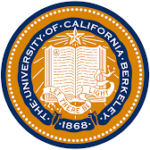 |
IAPHS Conference Call for Abstract Submissions (3/11/25)
|
The Interdisciplinary Association for Population Health Science (IAPHS) recently announced their call for abstract submissions for the 2025 Annual Meeting. The meeting theme will be “Community Engagement in Population Health Science” in recognition that solutions to health inequities and our greatest population health challenges aren’t found in the lab or a dataset, but rather within communities themselves. Learn more and submit your proposed abstract here.
(read more) |
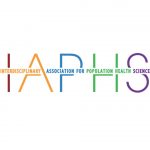 |
RSF Letters of Inquiry (Due 3/11/25)
Apply for the Robert Wood Johnson Foundation Health Policy Scholars Program (3/11/25)
|
The RWJF Health Policy Research Scholars is a leadership development program for full-time doctoral students from historically marginalized backgrounds who can connect how their background, identity, or lived experiences have positioned them to contribute to the goals of the program, including bringing unique and diverse perspectives to their research. In 2025, HPRS is selecting up to 40 doctoral students who are beginning their second year in fall 2025 in a full-time doctoral program and do not expect to graduate before spring/summer 2028.
(read more) |
 |
*New* American Council of Learned Societies (ACLS) Leading Edge Fellowship (3/12/25)
|
The American Council of Learned Societies (ACLS) announced the seventh competition of the Leading Edge Fellowship program, which demonstrates the potential of humanistic knowledge and methods to solve problems, build organizational capacity, and advance justice and equity in society. Leading Edge Fellowships place recent humanities PhDs with nonprofit organizations promoting social justice in their communities. Fellows take on substantive roles that draw on the skills and capacities honed in the course of earning the humanities PhD, including advanced communication, research, project management, and creative problem solving.
(read more) |
 |
Heat Measurement Webinar from the Center for Aging, Climate, & Health (3/19/25)
|
The March seminar from the Center for Aging, Climate, & Health (CACHE) will discuss heat measures for aging and demographic research. It will address the properties and pertinence of using mean and extreme temperature measures, as well as using combined indicators of heat (temperature, humidity, radiation, or ventilation) and their adjustments by age. To illustrate these constructs, results and data integration strategies from two demonstration projects will be presented. Learn more and register here.
(read more) |
 |
*New* Sloan Foundation Issues Call for Letters of Inquiry (3/25/25)
Call for Papers: Growing Divergences in Longevity in High-Income Populations – 7th Human Mortality Database Symposium (3/30/25)
|
The Human Mortality Database Project team invites contributions to the 7 th HMD Symposium. This year, the Symposium will be dedicated to investigating the main drivers and obstacles to longevity progress in the pre- and post-COVID eras. Contributions from demographers, epidemiologists, public health experts and researchers from related fields conducting analyses based on the cause-of-death series newly integrated into the Human Mortality Database (HMD) are particularly encouraged. The Symposium seeks to address major topics and challenges of substantive research as well as methodological and data issues.
(read more) |
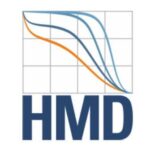 |
*New* Huo Family Foundation Grants on Effects of Digital Technology in Children (4/2/25)
|
There has been a broad array of research efforts to measure the amount of usage of digital technology (e.g. total screen time) and the observed effects and impact on health. Despite these efforts, the full implications – both positive and negative – on human physiology, psychology, behaviour, well-being and mental health remain unclear. To address this gap, the Huo Family Foundation invites applications for special projects on "The Effects of the Usage of Digital Technology on Brain Development, Social Behaviours and Mental Health in Children and Young People."
These larger and longer-term research awards would allow researchers of all career stages, collaborating as a multi-disciplinary team with different expertise and skills, to take an integrated approach to tackle the more difficult questions in this domain. Proposals should be tackling key questions within the broad topic of the effects of usage of and exposure to digital technologies on brain development and function (including physiological responses), social behaviour and interactions, and mental health of children and young people.
(read more) |
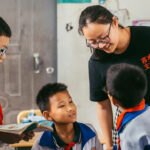 |
RSF Call for Proposals from Early-Career Scholars – Causal Research on Criminal Justice System (Due 4/3/25)
|
The Russell Sage Foundation (RSF) and Arnold Ventures recently announced a collaborative call for causal research on the criminal justice system. Criminal justice policies and practices include the work of the police, courts, jails, prisons, probation and parole, and immigration detention. Proposals must include causal research designs that can reliably isolate the treatment effects of a policy, practice, or intervention such as difference-in-differences, regression discontinuity, instrumental variables, and randomized controlled trials.
(read more) |
 |
*New* Sloan Foundation Metascience and AI Postdoctoral Fellowship (4/10/25)
|
This is a postdoctoral fellowship program for early career researchers in the social sciences and humanities (with particular emphasis on philosophy, sociology of science, and metascience) who are interested in building a career in understanding the implications of AI for the science and research ecosystem. Grants of up to $250,000 (USD) over up to two years will be awarded to social sciences and humanities postdoctoral researchers who study the implications of AI for Science. Learn more here.
(read more) |
 |
*New* Gatzert Child Welfare Fellowship for Dissertation Writing (4/15/25)
*New* Applications Open for Panel Study of Income Dynamics (PSID) Summer Workshop (4/21/25)
|
This five-day workshop from June 16-20 in Ann Arbor, MI will orient participants to the content and structure of the core PSID interview, its special topics modules, and its supplemental studies, including the Child Development Supplement (CDS), the Transition into Adulthood Supplement (TAS), and the 2013 Rosters and Transfers Module. In addition we will discuss topics including the genomics data collected from children and adults as well as new data files which explain family relationships and demographic characteristics over time.
(read more) |
 |
Sign up to join the Early Career listserv!
|
We invite early career faculty affiliates to join our new mailing list, csde_earlycareer. Among other things, this is the way to find out info about our quarterly Early Career Affiliate happy hours, and you won't want to miss those! These will be a great way to meet up with other junior scholars in a fun and casual atmosphere over snacks and drinks. Who counts as early career, you ask? Typically we mean folks who are pre-promotion (i.e. assistant professor or equivalent), but we're not strict! Join the list here (Please note - this is for faculty only - we are strict about that. Sorry, all others!)
(read more) |
 |
2025 PAA News & Activities
|
Check this space for new activities and events leading up to PAA 2025. We will update it regularly as the conference approaches!
Just announced: the Psychosocial Workshop is a two-day gathering of social scientists, public health researchers, and related professionals working on sexual and reproductive health issues, particularly those related to abortion, contraception, fertility, and sexually transmitted diseases. The signature format of the workshop is its dynamic series of five-minute presentations, where each speaker discusses current work or new ideas, that allows for peer feedback and dialogue in a collegial environment. Always held prior to the PAA Annual Meeting, this year the workshop will take place on Wednesday and Thursday, April 9 and 10, 2025 at the Marriott Marquis in Washington DC or virtually online. Learn more and register here.
The Center for Aging, Climate and Health (CACHE) also recently announced a 1-day mini-conference with the Interdisciplinary Network on Rural Population Health and Aging (INRPHA) ahead of the PAA Annual Conference. The mini-conference will feature research presentations and discussion on data resources and gaps at the intersection of aging, climate, and health. Led by INRPHA and CACHE, this session will bring together researchers to explore pressing challenges and opportunities in the field.
(read more) |
 |
Updating the Definition of Sexual and Gender Minority Populations in NIH-Supported Research
|
Statistics indicate that as of 2024, nearly eight percent of the U.S. population identifies as LGBT, with much of this growth attributed to increases in LGBT identification among younger generations. In recent years, policies and laws have been enacted in support of LGBTQI+ communities and their well-being. For example, the 21st Century Cures Act included provisions for the NIH Director to encourage efforts to improve research related to the health of sexual and gender minority (SGM) populations, including to increase participation of SGM populations in NIH-supported clinical research and to facilitate the development of methods for conducting SGM research. SGM people were designated as a population with health disparities for NIH research in 2016 by the Director of the National Institute on Minority Health and Health Disparities in consultation with the Director of the Agency for Healthcare Research and Quality. The NIH SGM health research portfolio has steadily grown and diversified since 2015.
However, members of SGM communities still face unique and significant disparities and barriers across domains such as physical, mental, and behavioral health; social and structural determinants of health; and healthcare access and quality. This includes higher SGM group-specific rates of and risks for some chronic health conditions (e.g., arthritis, asthma, cardiovascular disease, diabetes, certain forms of cancer, and HIV/AIDS), depression, anxiety, eating disorders, substance use, smoking, stigma, discrimination, bullying, using preventive health services less frequently, and negative experiences in healthcare settings.
(read more) |
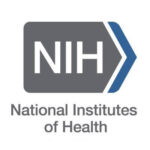 |
CSDE Population Research Planning Grants (PRPGs) (Rolling deadline)
|
Population Research Planning Grants (PRPGs) are designed to provide in-kind support and/or funds of up to $25k* to support a wide array of activity types throughout the development of a research project. As part of our mission to complement rather than duplicate other campus opportunities such as the Population Health Initiative seed grants, we will consider funding things activities such as the use of CSDE services beyond the standard allotments for affiliates.
(read more) |
 |
CSDE Matching Support to Supplement On-campus Funding (Rolling deadline)
|
CSDE Matching Support includes in-kind or monetary support to accompany a submission to other on-campus funding mechanism, such as PHI, EarthLab, or Urban@UW. All projects must have a CSDE affiliate who is UW faculty and is listed as a PI or co-PI, with any number of other collaborators. Note that we require (PRPGs) or strongly suggest (matching funds) contacting either Development Core Director (Steven Goodreau) or CSDE Director (Sara Curran) to discuss possibilities for your specific proposal before submission.
(read more) |
 |
NSF: Proposals Impacting Tribal Nation Resources & Interests
|
As of 5/20/2024, NSF proposals that may impact the resources or interests of a federally recognized Tribal Nation will not be awarded by NSF without prior written approval from the official(s) designated by the relevant Tribal Nation(s).
Proposers must:
- Seek guidance from the potentially impacted Tribal Nation on activities that require review and prior approval from that Tribal Nation’s authorized designee.
- Submit a written request to the relevant Tribal Nation (based on their guidance), for approval to carry out the proposed activity that requires their review and approval.
- Complete the checkbox for “Potential Impacts on Tribal Nations” on the Cover Sheet. Note, lead organizations are responsible for this on collaborative proposals & proposals with subawards considered a single unified project.
- Upload one of the following into "Other supplementary documents" of Research.gov:
- a copy of the written request to the relevant Tribal Nation to carry out any proposed activity/activities that may require prior approval from them
- written confirmation from the Tribal Nation(s) that review and approval is not required
- a copy of relevant Tribal Nation approval
(read more) |
 |
Overview of Grant Application and Review Changes for Due Dates on or after January 25, 2025
|
This notice provides the research and research training community an overview of application and peer review changes impacting grant applications submitted for due dates on or after January 25, 2025, including:
- Simplified Review Framework for Most Research Project Grant Applications
- Revisions to the NIH Fellowship Application and Review Process
- Updates to Reference Letter Guidance
- Updates to NRSA Training Grant Applications
- Updated Application Forms (FORMS-I)
- Common Forms for Biographical Sketch and Current and Pending (Other) Support
(read more) |
 |
|
|



